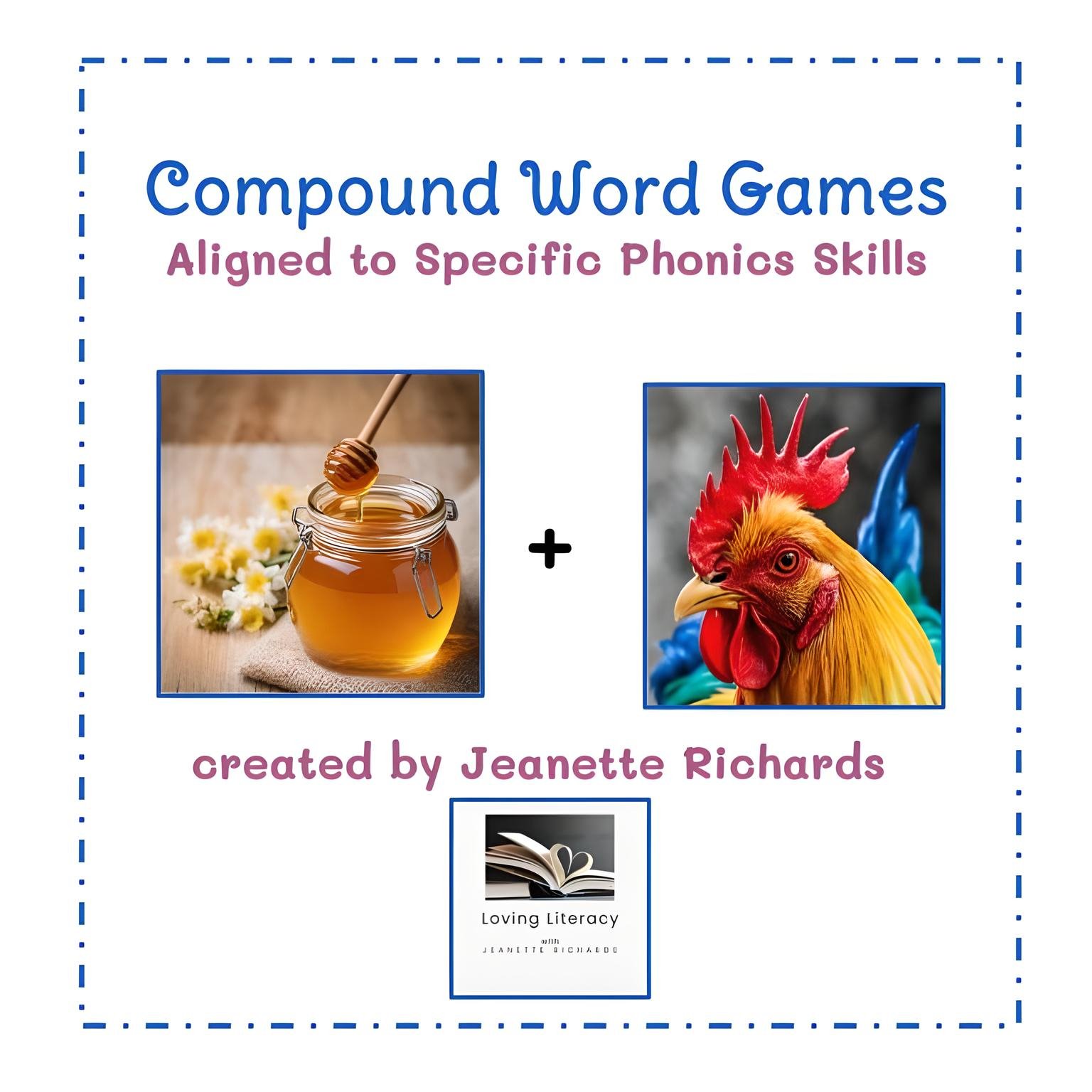Compound Word Games
Once students are able to read longer words, you’ll notice that some of your young readers substitute words in the text. Frequently, the substitutions will start and end similarly to the author’s words.
Students need to understand that our brains must focus on the whole word in order to read accurately. Working on compound words helps train our young readers to actively look at the whole word. Why? Because their goal is to figure out the two smaller words that make up the compound word. They can’t achieve that goal if they skip over the middle of the word.
The compound word games included in this resource can provide a fun way to practice this reading skill. A few ways to incorporate these games into your instruction include:
during small-group instruction
as part of your literacy center activities
for home reading
This resource includes a total of 17 different compound word games aligned to five phonics skills. For each phonics skill, there is a pathway gameboard and a “Roll and Read” game sheet. The games with a pathway include both a coloured and a black-and-white version.
The five levels of compound word games move from simple to more complex following this sequence:
Compound words with short vowel sounds.
Compound words with the CVCe pattern.
Compound words with r-controlled vowels.
Compound words with vowel teams & ending y.
Compound words with complex vowel teams (diphthongs).
Once students are able to read longer words, you’ll notice that some of your young readers substitute words in the text. Frequently, the substitutions will start and end similarly to the author’s words.
Students need to understand that our brains must focus on the whole word in order to read accurately. Working on compound words helps train our young readers to actively look at the whole word. Why? Because their goal is to figure out the two smaller words that make up the compound word. They can’t achieve that goal if they skip over the middle of the word.
The compound word games included in this resource can provide a fun way to practice this reading skill. A few ways to incorporate these games into your instruction include:
during small-group instruction
as part of your literacy center activities
for home reading
This resource includes a total of 17 different compound word games aligned to five phonics skills. For each phonics skill, there is a pathway gameboard and a “Roll and Read” game sheet. The games with a pathway include both a coloured and a black-and-white version.
The five levels of compound word games move from simple to more complex following this sequence:
Compound words with short vowel sounds.
Compound words with the CVCe pattern.
Compound words with r-controlled vowels.
Compound words with vowel teams & ending y.
Compound words with complex vowel teams (diphthongs).
Once students are able to read longer words, you’ll notice that some of your young readers substitute words in the text. Frequently, the substitutions will start and end similarly to the author’s words.
Students need to understand that our brains must focus on the whole word in order to read accurately. Working on compound words helps train our young readers to actively look at the whole word. Why? Because their goal is to figure out the two smaller words that make up the compound word. They can’t achieve that goal if they skip over the middle of the word.
The compound word games included in this resource can provide a fun way to practice this reading skill. A few ways to incorporate these games into your instruction include:
during small-group instruction
as part of your literacy center activities
for home reading
This resource includes a total of 17 different compound word games aligned to five phonics skills. For each phonics skill, there is a pathway gameboard and a “Roll and Read” game sheet. The games with a pathway include both a coloured and a black-and-white version.
The five levels of compound word games move from simple to more complex following this sequence:
Compound words with short vowel sounds.
Compound words with the CVCe pattern.
Compound words with r-controlled vowels.
Compound words with vowel teams & ending y.
Compound words with complex vowel teams (diphthongs).








